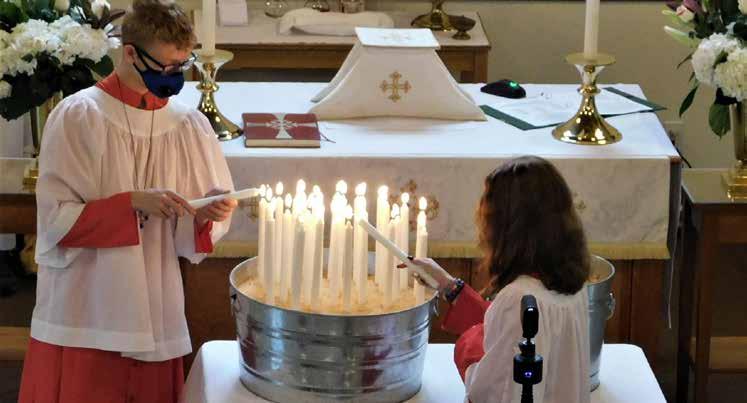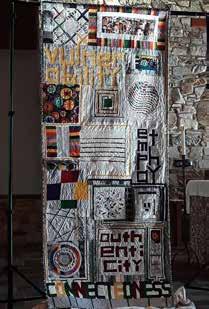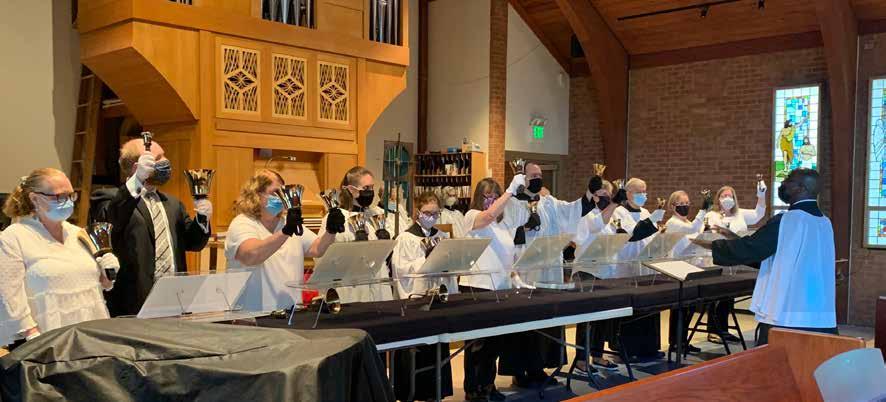
3 minute read
What We Are Looking For In A Bishop
PERSONAL QUALITIES
1. Sound judgment and wisdom 2. Personal Integrity 3. Deeply spiritual and prayerful
Advertisement
CRITICAL ABILITIES
1. Strategic Vision: Ability to articulate a clear vision for the future. 2. Community Building: Ability to create unity of purpose among diverse groups. 3. Pastoral Care: Ability to be pastoral and approachable.
INTENTIONAL FOCUS AREAS
1. Take a leadership role in working with churches that are struggling. 2. Equip Clergy and other leaders in congregations with strategies geared toward bringing in new members. 3. Develop a discernment process to rethink how to be vital Episcopal churches in our region.
SHOULD HAVES
1. Demonstrate a servant’s heart and a passion for justice, as well as commitment to roles the
Church can play in solving community problems and addressing human need. 2. Lead, with confidence in the Good News of Jesus
Christ, as the Church faces the great challenge of remaining relevant and redeeming in a divided, doubtful world. 3. Understand that the past can have an impact on the present but move forward with confidence in your ability to overcome adversity and fulfill your purpose through Jesus Christ our Lord.
The saying is sure, whoever aspires to the office of bishop desires a noble task. 1 TIMOTHY 3:1
Throughout the Episcopal Diocese of Maryland, people would like the Diocesan leadership, led by our incoming bishop, to work on establishing a shared uniting vision. Proverbs 29:18 says: Without prophetic vision people run wild. The responses to a diocesan-wide survey in which 685 people, clergy and lay, participated are synthesized into the series of top threes shown at left. The data indicated that the following skills will be important for the next bishop to demonstrate for a successful episcopacy in the Diocese of Maryland: 1. Experience in strategic planning and consistent implementation of strategic targets. 2. A track record of using creative ways to support congregations by helping them move towards becoming vital parts of their community. 3. Good leadership development skills that work towards creating strong and effective leaders.
These skills should also include clear ways to make leadership more representative of the
Diocese with ready paths to encourage and mentor new leaders.
4. An openness to create ways to engage people diocesan-wide in meetings that add value to the ministry of the Diocese and the churches it serves.
While the survey determined that there are no areas that need urgent attention—Whew!—there are places that need improvement. Work in these areas will have the greatest impact on improving satisfaction throughout the diocese. The data also showed that when important decisions get made, it is essential that the leadership take the opportunity to consider different opinions and approaches in that decision-making. We also are looking for ways that our leadership can be more representative of the membership as well. That final desire calls to mind the words Jeremiah wrote to the exiles in Babylon: Seek the welfare of the city where I have sent you into exile, and pray to the LORD on its behalf, for in its welfare you will find your welfare.–Jeremiah 29:7
Statement of Preferred Future:
In the Episcopal Diocese of Maryland, we will be a Diocese that provides responsive and meaningful support to our congregations so they can navigate the hardships they are facing. We will be an effective resource for congregations helping them become vital parts of the region and communities they seek to serve. We will commit ourselves to leadership development and a system-wide decisionmaking process that is transparent with representative leaders who are approachable and open to different ways to work through challenges. Our time spent together in meetings, ministry and other work will have a clear, uniting purpose that leaves participants feeling that we do good work together to better serve Christ and our communities.








